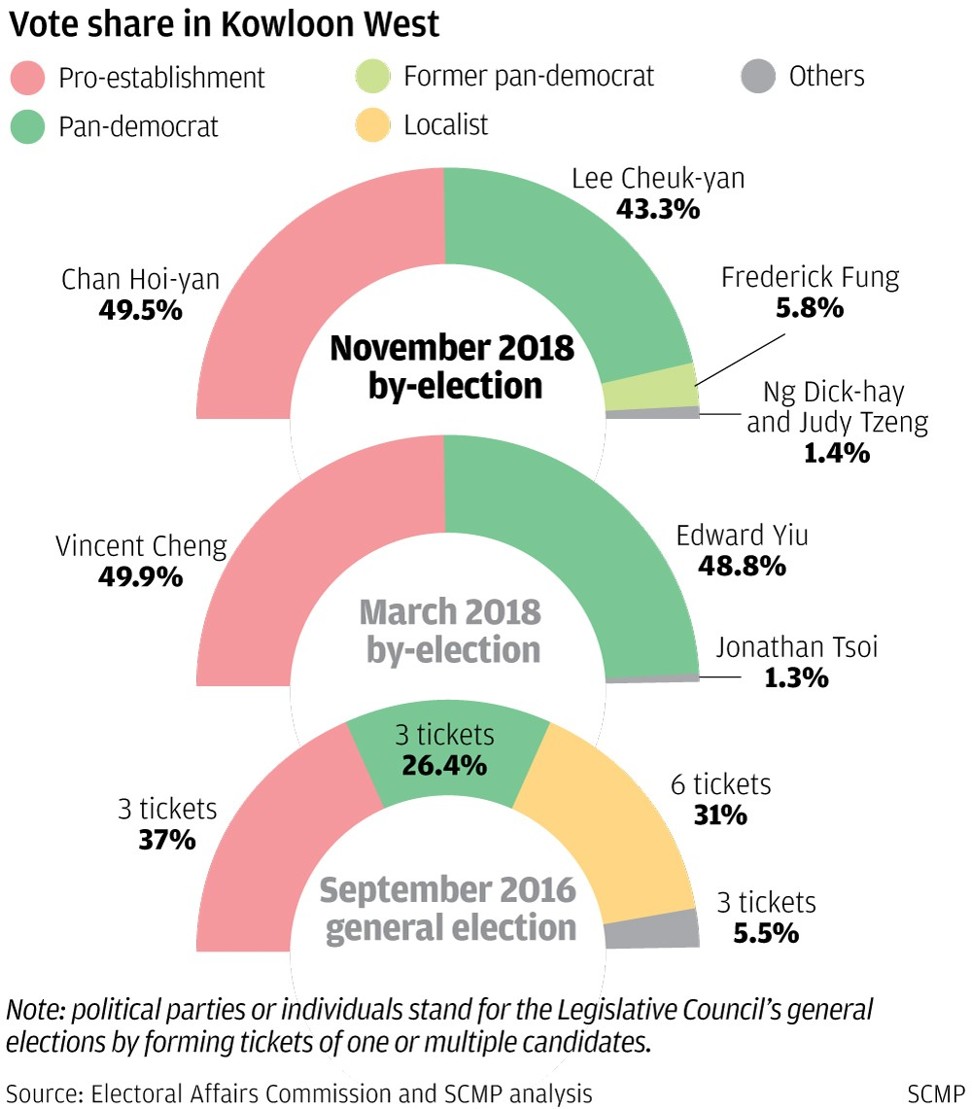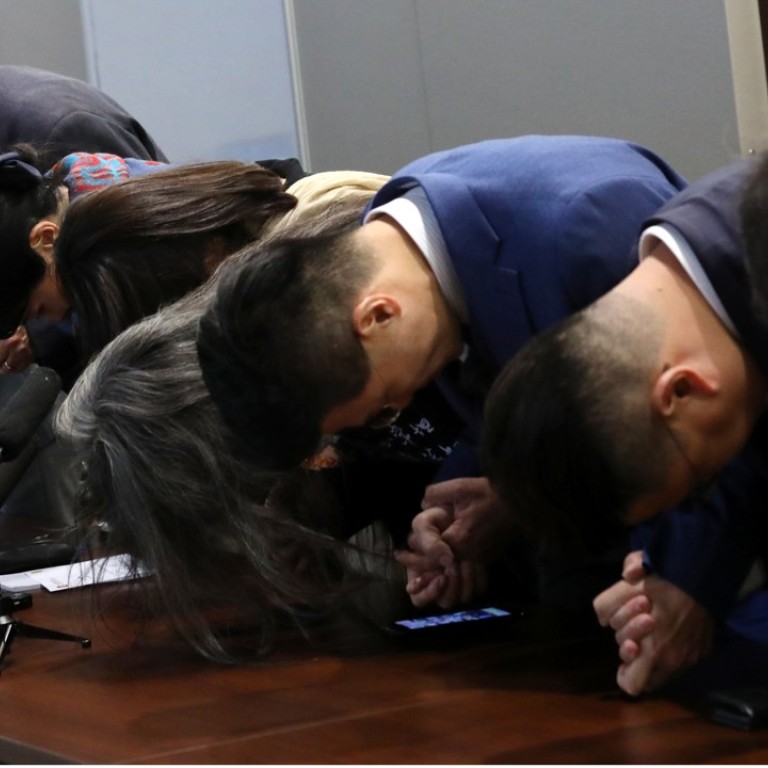
Soul-searching and public apology from Hong Kong opposition after decisive defeat in by-election to pro-establishment camp
- Second loss this year in by-election shatters pro-democracy bloc’s hopes of regaining veto power in legislature
- Defeated candidate Lee Cheuk-yan and 12 of his pan-democrat colleagues face media cameras and bow low in apology
Political newcomer Chan Hoi-yan, backed by the establishment, captured 106,457 votes, or 49.5 per cent of the total in the Kowloon West geographical constituency, which has traditionally been a stronghold of the opposition.
Her arch-rival, Labour Party stalwart Lee Cheuk-yan from the pan-democratic camp, secured 93,047 – or 43.3 per cent – while Frederick Fung Kin-kee, a former political ally who ran against him independently this time, managed 12,509 votes, or 5.8 per cent.
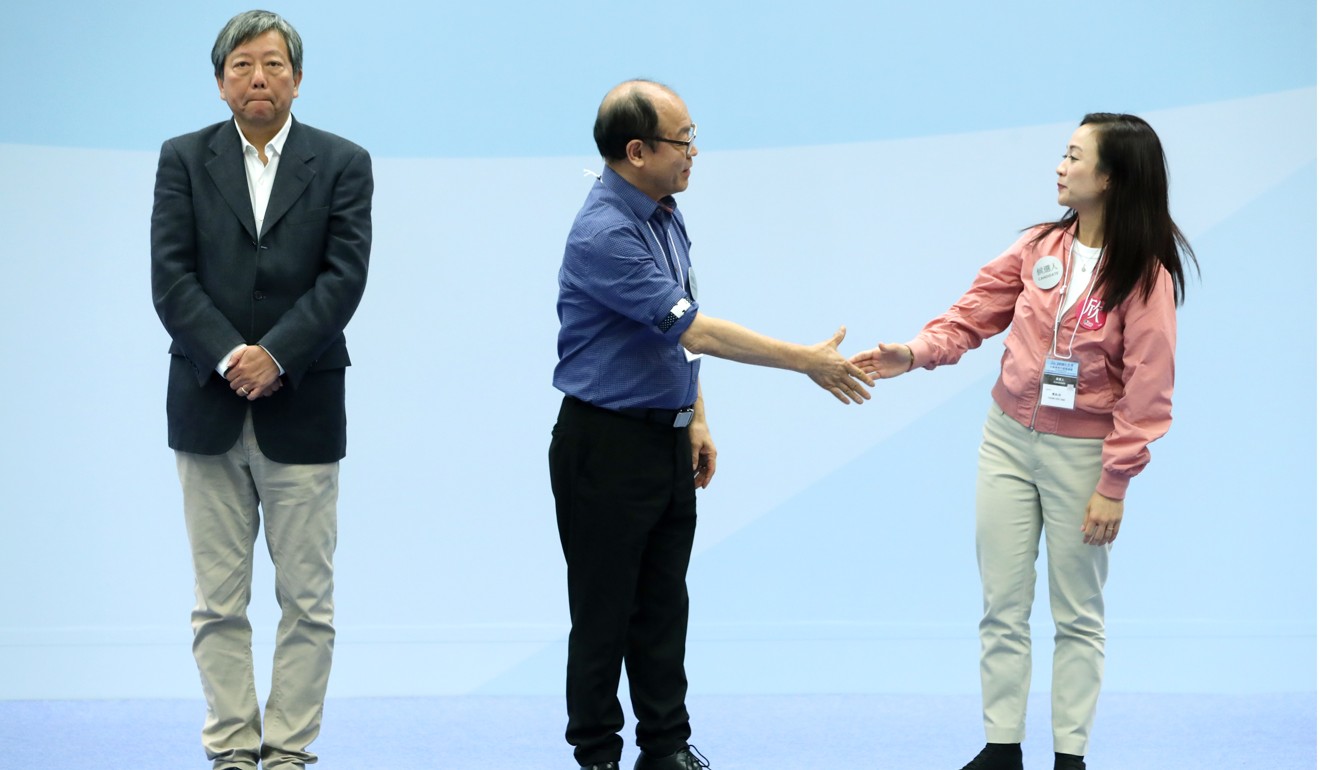
Their second defeat this year in a by-election shattered the pro-democracy bloc’s hopes of regaining veto power in the Legislative Council.
They are now outnumbered 18 to 16 by government supporters in Legco’s geographical constituencies – which is unprecedented – while their opponents have further cemented their dominance ahead of the 2020 general election.
Why did Hong Kong voters reject pro-democracy candidate?
The political landscape renders the opposition camp unable to block motions tabled by their pro-establishment rivals, including possible moves to make further changes to the legislature’s rule book.
The two seats were originally occupied by pro-democracy lawmakers Yau Wai-ching and Lau Siu-lai, who were ousted along with four other colleagues over improper oath-taking in 2016.
The camp’s Edward Yiu Chung-yim re-contested one of those seats in March, but was defeated by pro-establishment rival Vincent Cheng Wing-shun.
Lee was the “plan B” candidate for Sunday’s poll after Lau was disqualified on the grounds that she had promoted self-determination for Hong Kong amid an official crackdown on independence advocacy.
Two other candidates, IT worker Ng Dick-hay and non-affiliated Judy Tzeng Li-wan, took 1,650 and 1,307 votes respectively.
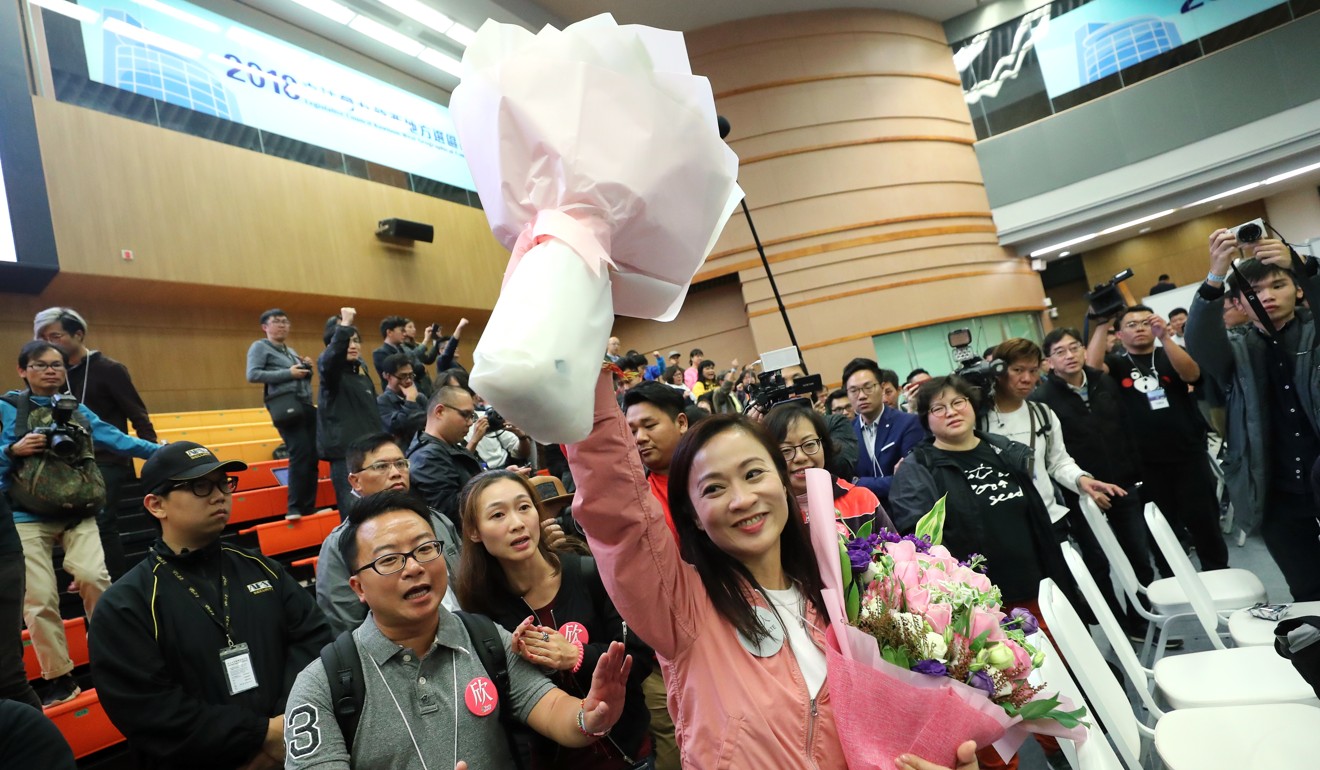
“We apologise for being unable to reverse voters’ sense of helplessness in elections,” a statement issued on Monday by 24 pan-democratic lawmakers read.
Lee was solemn as he faced the media cameras with 12 of his colleagues, saying: “We shall have a review of our strategy. We shall reach out to listen to the views of those who did not vote for me. We shall do our best to win back the hearts of Hong Kong people.”
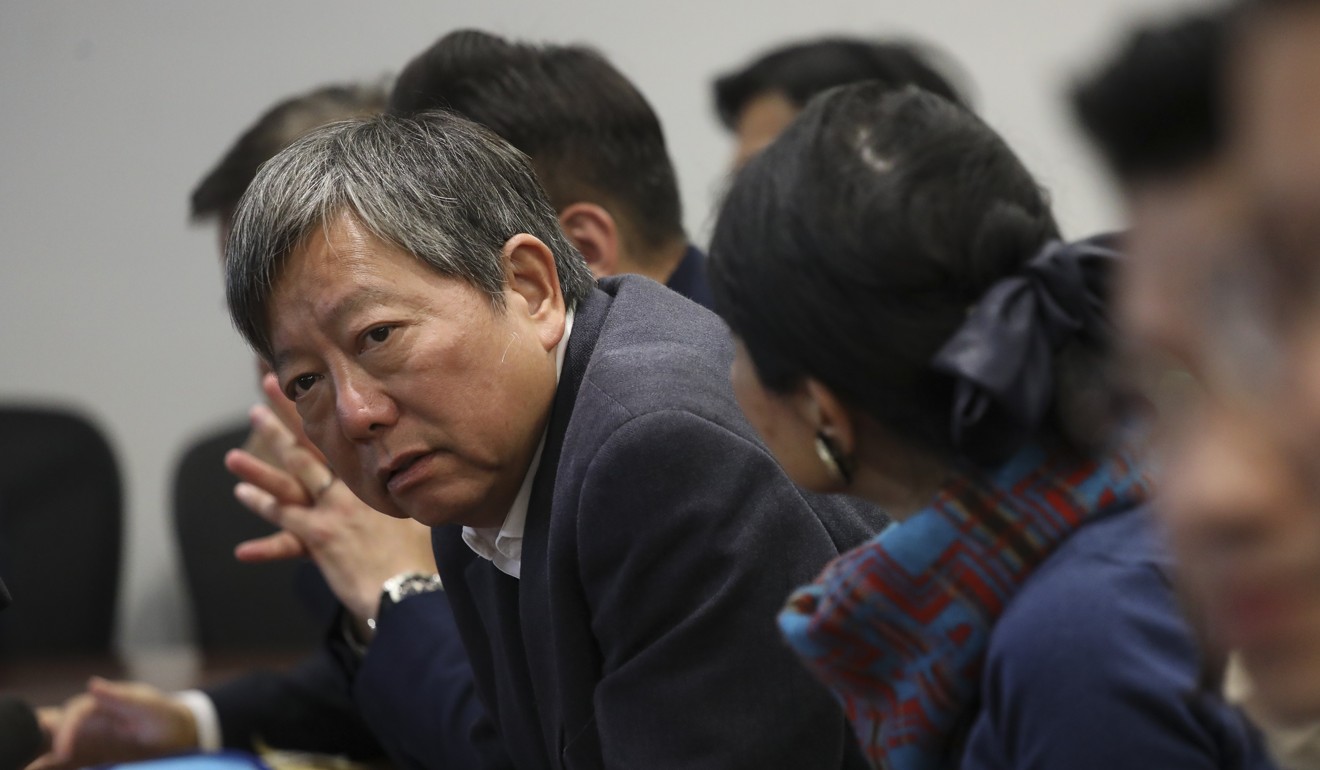
The veteran unionist blamed his defeat partly on an alleged smear campaign by the pro-establishment camp, and partly on Fung’s participation splitting pan-democratic support. But their combined vote total still fell 901 short of Chan’s.
Hong Kong election winner has ‘no plans to join pro-Beijing party – so far’
Voting data from each of the constituency’s 73 polling stations suggested that a failure to attract public housing tenants and localists was more to blame.
Lee’s vote count at 49 polling stations dropped by more than 10 per cent, compared with Yiu’s tally in March. Chan’s vote count, in contrast, rose at 26 stations.
Chinese University political scientist Ivan Choy Chi-keung noted Lee and his camp’s predicament in terms of the lack of support from young pro-democracy voters.
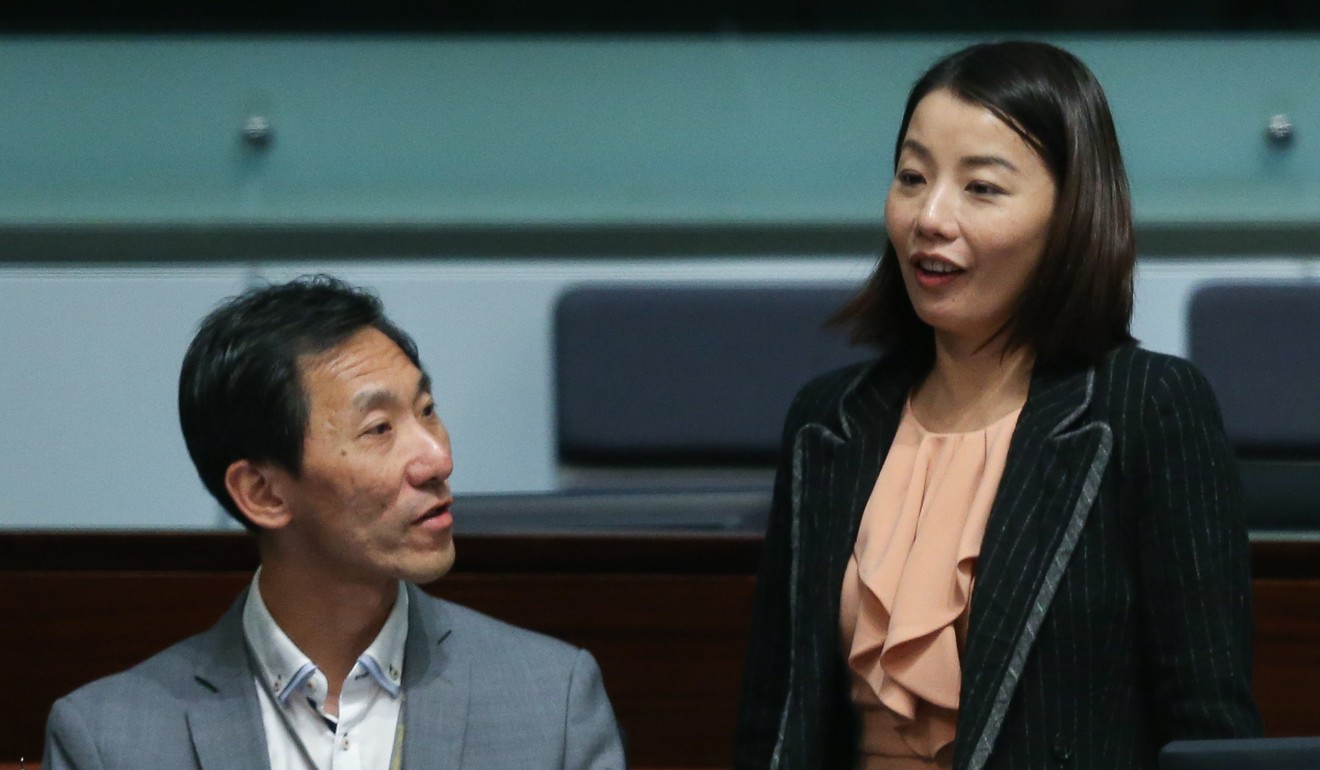
“That’s also the dilemma of the pan-democrats,” Choy said. “The more moderate they become, the more young people will leave them. But if they go in the localist and anti-China direction, they will lose more middle-ground voters.”
Choy also concluded that voters were fed up with the pan-democrats’ delaying tactics in the legislature to frustrate the government.
Lee was out and about in Whampoa on Monday to thank those who voted for him, while Chan went to Kowloon City to greet her supporters.
“I think my victory reflected that the voters wish for less quarrelling and confrontation and a higher priority for their well-being,” Chan said.
Additional reporting by Sum Lok-kei and Su Xinqi




